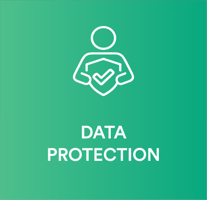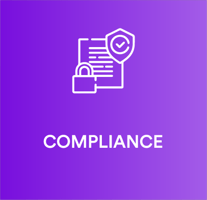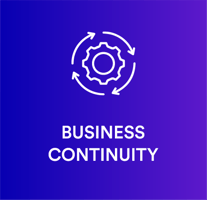-
Our Focus
Our Focus
Our expertise in key areas that are critical for the success of your business.
-
Our Services
Our Services
Tailored services for clients and candidates to build long term relationships.
-
Our Resources
Our Resources
Strengthen your path to success with our resource center.
-
Our Company
Our Company
Explore what makes us unique and connect with us today.
- GET STARTED
WHAT IS CLOUD SECURITY?
The Key to Keeping Your Data Safe and Your Business Secure.
As more and more businesses move their data and applications to the cloud, the need for robust cloud security measures becomes increasingly important. Cloud security refers to the practices and technologies used to protect cloud-based data, applications, and infrastructure from cyber threats such as unauthorized access, data breaches, and denial-of-service attacks.
Cloud security measures may include identity and access management, encryption, network security, data backups, and disaster recovery planning.
WHY IS CLOUD SECURITY IMPORTANT?
Cloud security is important for businesses that store data and applications in the cloud.
Implementing strong cloud security measures is essential for businesses that want to take advantage of the benefits of cloud computing while also ensuring the confidentiality, integrity, and availability of their data.
Strong cloud security measures help protect sensitive data and intellectual property from cyber threats such as hacking, data breaches, and insider attacks. This is especially important for businesses that handle sensitive information such as financial data.

Cloud security measures help protect sensitive data and intellectual property from cyber threats such as hacking, data breaches, and insider attacks.

Strong cloud security measures help businesses comply with industry regulations and avoid penalties.

Cloud security measures ensure business continuity despite cyber attacks, natural disasters or other disruptions.

Strong cloud security measures protect business reputation and demonstrate commitment to data protection and customer privacy.
Cloud Security is especially important for businesses that handle sensitive information such as financial data, personal information, and trade secrets.
OUR CLOUD SECURITY TALENT SERVICES
Elevate Security with Cloud Talent
Embrace cloud security with our exceptional talent pool. Our expert professionals bring a proactive approach to safeguard your cloud infrastructure, building a dream team that fortifies your defenses and ensures integrity and resilience in today's digital landscape.
WHY CHOOSE OUR SERVICES?

Experience and Expertise in Cloud Security Talent
Our specialized recruiters have in-depth understanding of the Cybersecurity industry, ensuring we find the most skilled candidates for you.
Quality and Speed
Our network and screening methods ensure quick hiring of high-quality Cloud Security professionals.
Customized Staffing Solutions
We provide staffing solutions tailored to your unique needs, from individual Cloud Security specialists to entire teams.

Secure Your Cloud: Find Top Talent or Your Dream Job Now!
CLIENT SERVICES
Accelerate Your Cloud Security Initiatives with Harrison Clarke: Your Trusted Partner in Talent Acquisition
In the fast-paced world of Cloud Security, the right talent can make all the difference. Harrison Clarke is your strategic partner in talent acquisition, dedicated to helping you find the top Cloud Security professionals who will drive your initiatives forward.

Expert Talent Pool
Gain access to our extensive network of highly qualified Cloud Security professionals.
Tailored Talent Solutions
We understand your unique needs and will provide you with talent solutions that are tailored to your company’s specific objectives.
Partnership Approach
We’re not just a recruitment firm. We’re your strategic partner, committed to supporting you throughout the hiring process and beyond.TALENT SERVICES
Advance Your Cloud Security Career with Harrison Clarke: Your Partner in Success
At Harrison Clarke, we’re more than just a recruiting company. We’re your strategic partner, committed to helping you navigate the competitive landscape of Cloud Security and take the next big leap in your career.

Industry Connections
Benefit from our deep relationships with leading companies in the Cybersecurity industry, from Fortune 500 firms to innovative startups.
Tailored Opportunities
We understand your unique skills and career goals, and we’ll match you with opportunities that align with your aspirations.
Career Support
We provide ongoing career advice and support, from interview preparation to negotiation, helping you secure the best possible terms for your new role.YOU ARE IN GOOD COMPANY
Join the growing network of Fortune 500 companies and fast-scaling startups that have chosen Harrison Clarke as their trusted partner
Including top companies backed by:
It is important for businesses to prioritize cloud security and develop a comprehensive strategy for securing their cloud-based data and applications.
CLOUD SECURITY RESOURCES CENTER
Dive into the world of Cloud Security by exploring our comprehensive blog and articles

How to Implement Performance Engineering for Tech Company Success
In today’s competitive tech landscape, performance is no longer a luxury—it’s a necessity. Users expect fast, reliable, and seamless digital...

Building a High-Performance Culture with Performance Engineering
In the rapidly evolving tech landscape, staying ahead of the competition demands more than just innovative products or services. It requires a...

The ROI of Performance Engineering: Measuring Success Beyond Speed
In today's competitive technology landscape, the performance of software systems plays a critical role in a company's success. Performance...
GUIDE
Mastering Cloud Security: Download Our Comprehensive Guide Today!
Embark on your Cloud Security journey with our comprehensive guide. Explore benefits, tackle challenges, and chart a path to success. Download now for invaluable insights!

Ready to get started?
Once a member of our team has fully understood your requirements, an expert consultant will be able to recommend a solution tailored to your specific needs.




